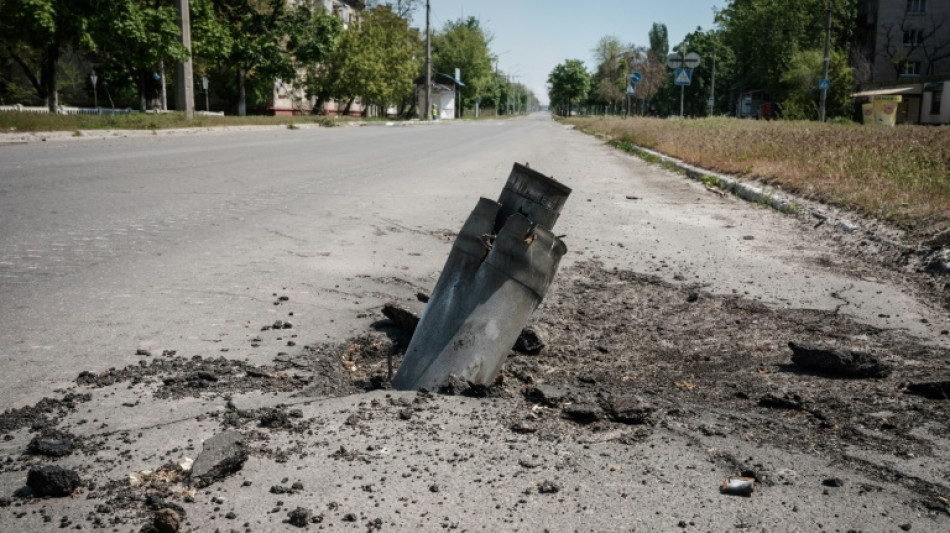
-
 First group of white South Africans arrive in US for resettlement
First group of white South Africans arrive in US for resettlement
-
Trump mulls joining Ukraine talks in Turkey, Kremlin silent on Putin

-
 US, China agree to slash tariffs as Trump says will speak to Xi
US, China agree to slash tariffs as Trump says will speak to Xi
-
Spanish rider Landa returns home for 'long recovery' after Giro crash

-
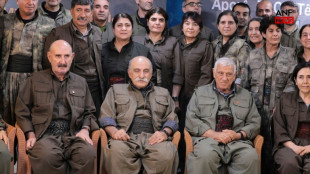 Kurdish militant group PKK ends decades of armed struggle
Kurdish militant group PKK ends decades of armed struggle
-
Trump says would be 'stupid' to reject Qatari Air Force One gift
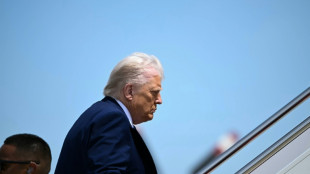
-
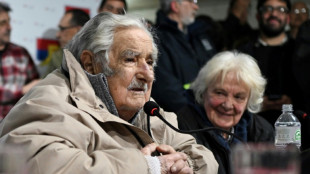 Uruguay's ex-president Mujica receiving palliative care: wife
Uruguay's ex-president Mujica receiving palliative care: wife
-
Remainder of IPL to be held between May 17-June 3 after ceasefire
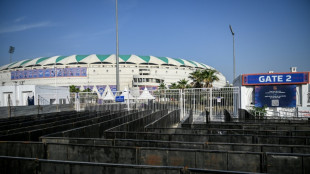
-
 Hamas frees US-Israeli hostage
Hamas frees US-Israeli hostage
-
Trump defends resettling white South Africans as refugees in US

-
 Sean 'Diddy' Combs was 'coercive and criminal,' jury hears
Sean 'Diddy' Combs was 'coercive and criminal,' jury hears
-
Nazi files found in champagne crates in Argentine court basement
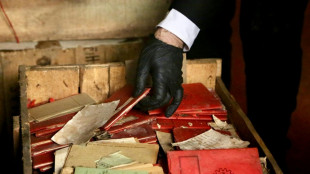
-
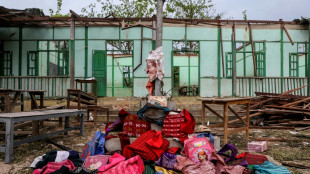 Myanmar junta airstrike kills 22 at school: witnesses
Myanmar junta airstrike kills 22 at school: witnesses
-
Zelensky wants Trump at peace talks, Russia silent on whether Putin will go
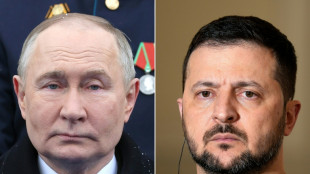
-
 Ground-breaking Grand National winner Blackmore retires
Ground-breaking Grand National winner Blackmore retires
-
Trump heads on major Middle East tour

-
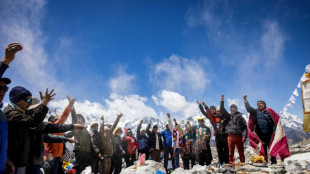 Nepal holds tribute for disappearing glacier
Nepal holds tribute for disappearing glacier
-
Sinner eases into Italian Open last 16, Osaka dumped out
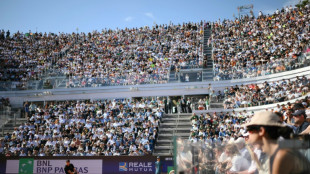
-
 Real Madrid duo Vinicius, Vazquez injured
Real Madrid duo Vinicius, Vazquez injured
-
Indian PM Modi vows strong response to any future 'terrorist attack'
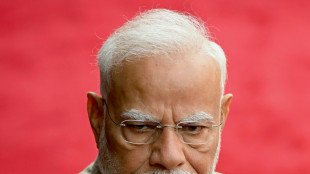
-
 Opening statements start in Sean 'Diddy' Combs trial
Opening statements start in Sean 'Diddy' Combs trial
-
Snow cover of Swiss glaciers below average this year: study

-
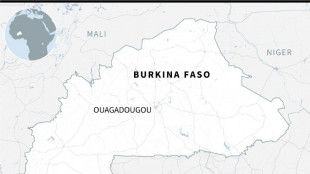 Jihadist attack kills 'several dozen' in Burkina Faso
Jihadist attack kills 'several dozen' in Burkina Faso
-
Ancelotti to leave Real Madrid for Brazil job

-
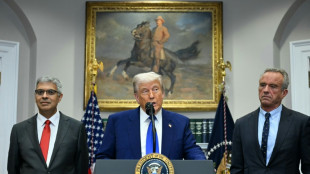 Trump announces drug prices cut with swipe at Europe
Trump announces drug prices cut with swipe at Europe
-
Ancelotti exits Madrid, hoping to add World Cup with Brazil

-
 US, China agree to slash tariffs as Trump says to speak with Xi soon
US, China agree to slash tariffs as Trump says to speak with Xi soon
-
Ancelotti to take over as Brazil coach

-
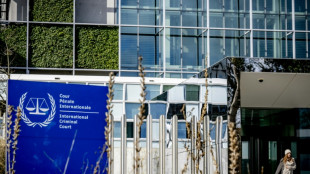 Israel urges ICC to drop arrest warrants against PM
Israel urges ICC to drop arrest warrants against PM
-
Poland to close Russian consulate in Krakow over 'sabotage'

-
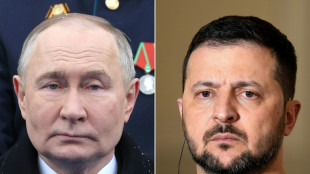 Kremlin rejects Europe's 'ultimatums' for truce with Ukraine
Kremlin rejects Europe's 'ultimatums' for truce with Ukraine
-
Ireland rugby captain Doris ruled out for up to six months

-
 Algerian attack survivor vows to be heard in court battle with award-winning author
Algerian attack survivor vows to be heard in court battle with award-winning author
-
Europa League glory could be 'turning point' for Spurs: Postecoglou

-
 White S.Africans resettled in US did not face 'persecution': govt
White S.Africans resettled in US did not face 'persecution': govt
-
Gaza faces 'critical risk of famine': UN report
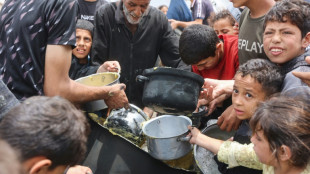
-
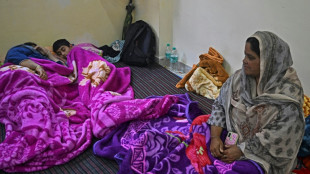 Indian teams defuse bombs in Kashmir border areas
Indian teams defuse bombs in Kashmir border areas
-
Kim Kardashian testifies in Paris multi-million-dollar robbery trial

-
 Alexander-Arnold exit will not overshadow Liverpool title party: Van Dijk
Alexander-Arnold exit will not overshadow Liverpool title party: Van Dijk
-
Osaka knocked out of Italian Open as fans await Sinner

-
 France condemns 'fake news' over Europe leaders' cocaine accusation
France condemns 'fake news' over Europe leaders' cocaine accusation
-
Indian PM Modi set to address nation after Pakistan truce
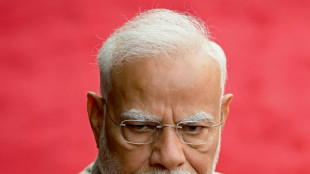
-
 With Israel ties on the table, UAE offers Saudis an example
With Israel ties on the table, UAE offers Saudis an example
-
UK urges Putin to 'get serious about peace'

-
 Leicester Tigers name Parling to replace Cheika as head coach
Leicester Tigers name Parling to replace Cheika as head coach
-
UK govt toughens immigration plans as hard-right gains

-
 Markets rally after China, US slash tariffs
Markets rally after China, US slash tariffs
-
Leo XIV urges release of jailed journalists as Zelensky invites to Ukraine

-
 Film legend Bardot backs Depardieu ahead of sexual assault verdict
Film legend Bardot backs Depardieu ahead of sexual assault verdict
-
Mbappe shows fallen Real Madrid new road to riches


'Critically stable': Ukraine's last stand for easternmost hub
The dozen jumpy and exhausted soldiers cowering under a bridge from incoming shellfire formed Ukraine's last line of defence against Russia's assault on this easternmost city still held by Kyiv.
Behind them lay the smouldering remains of what was once a 100,000-strong industrial hub filled with Soviet-era apartment towers and a major chemicals plant.
But their eyes were trained on a field on the opposite side of the bridge from which the Russians had spent the night firing missiles at the last defenders of Severodonetsk.
If the city falls on Sunday, it would mean the Kremlin has gained de facto control of Lugansk -- the smaller of the two republics comprising the Donbas war zone -- in time for Russia's annual Victory Day celebrations on Monday.
The heavily-armed combat soldiers manning the underpass on the northern edge of the city were anxiously shouting commands into their walkie-talkies next to a burnt-out van.
A few anti-tank missiles lay next to a kettle they kept over an open fire to fill their thermoses with tea.
The eerily empty road leading toward the Russians was strewn with the twisted remains of munitions and power lines ripped off their posts by incessant blasts.
The soldiers looked too tired to put on a brave face.
"I would rather not guess how long we can hold on. All I can say is that we are here now," said their unit commander under condition that his name not be used on security grounds.
"The best way to describe the situation? Critically stable," he said with a sardonic laugh.
- Communication blackout -
A clear pattern has emerged on Ukraine's eastern front in the third month of Russia's assault on its pro-Western neighbour.
Ukrainian units are counterattacking and making gains to the east of the northern city of Kharkiv.
But the Russians are chewing up territory roughly 100 miles (160 kilometres) to the southeast of the Ukrainian push.
The two forces are converging for an even bigger battle that could determine if the Russians can capture Ukraine's eastern administration centre in Kramatorsk.
The frontlines are shifting across open fields and valleys dotted with industrial towns and rural settlements that have lost almost all links to the outside world.
Severodonetsk has been transformed into a moonscape of roads filled with craters and buildings charred by mortar and missile attacks.
Some locals braved the fighting to try and knit together the ripped power lines by climbing their wooden poles.
"We have had no power or water for two weeks," said welder Gennady Lastovets while waiting for a car that promised to evacuate his 81-year-old father.
"But I honestly have no idea how the war is going," the 55-year-old said. "There are rumours, but we have no internet, no phone service."
- Losing hope -
All Galina Abdurashikova knew was that she was still alive after crawling out barefoot from under a missile strike on her apartment and then spending the next five days alone in an abandoned car.
But 65-year-old was slowly losing hope.
"I have nothing to eat or drink. I had a bottle of water, but not anymore and my mouth is dry," she whispered.
Her beat-up Lada was the lone vehicle left on a major street running through an industrial zone in which no one -- neither soldiers nor civilians -- seemed willing to step outside.
"Now I am not afraid of anything anymore," she said of the bangs that erupted every few seconds from various part of the city as she spoke.
"At first I was afraid that those things would would kill me, but now I am not afraid. If it hits me, it hits me."
- 'They fled' -
The city is now run by a civil-military administration that operates out of a building that once housed more than half a dozen US and European relief agencies.
But the foreign aid workers were forced to comply with evacuation orders issued by their respective governments before the war broke out on February 24.
The remaining volunteers -- including a few from Europe -- feel abandoned and betrayed. Much of their work now depends on support from Ukrainian soldiers who help sort and distributed the food.
"They fled and they never looked back," British humanitarian aid volunteer Philip Ivlev-York fumed while showing off the looted office of one of the European relief agencies.
City administration chief Oleksandr Stryup was busy in the building's basement leafing through papers to determine where to send the remaining supplies.
A salvo of missile-defence fire from a fortified position in front of the building shattered his concentration and forced him to look up from his desk.
"The situation is getting tenser because the attacks are becoming more frequent," Stryup conceded.
"They are trying to take the city. And we are defending it."
S.Gregor--AMWN